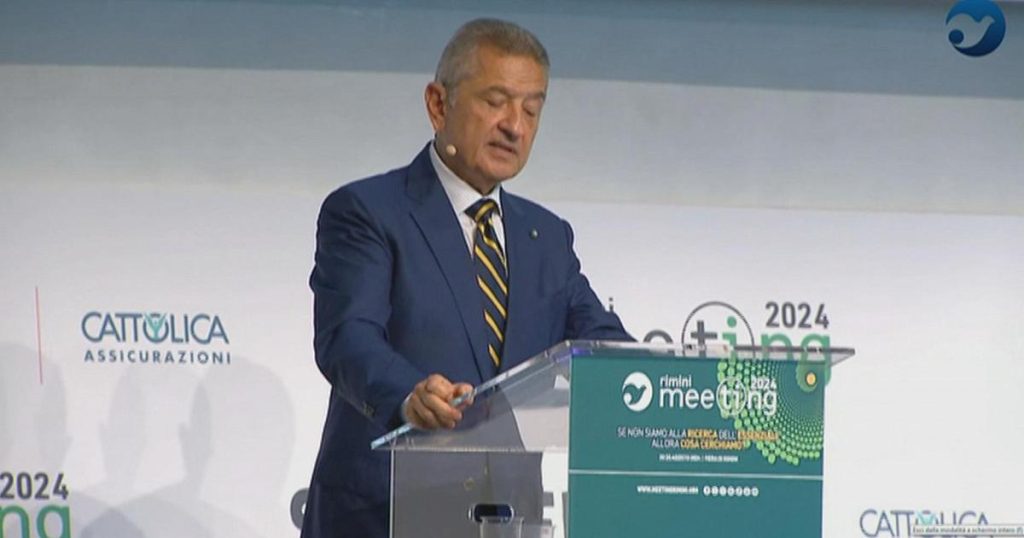The crucial issue remains reducing public debt in relation to GDP. High debt makes financing for businesses more burdensome, hindering competitiveness and the incentive to invest. Italy is the only country in the euro area where public spending on debt interest is nearly equivalent to that on education. This comparison is emblematic of how high debt is weighing on the future of younger generations. Governor of the Bank of Italy, Fabio Panetta, highlighted this at the Meeting in Rimini.
Panetta emphasized the need to address the high public debt levels in Italy to alleviate the burden on future generations. He pointed out that Italy’s public spending on debt interest is now almost equal to that on education. This situation is impacting the competitiveness of businesses and their ability to invest, ultimately affecting the prospects of young people in the country. Panetta’s remarks underscore the urgency of reducing public debt to ensure a sustainable future for Italy.
The governor’s remarks at the Meeting in Rimini shed light on the challenges posed by Italy’s high public debt levels. He highlighted how this debt is hindering competitiveness and investment in the country, particularly compared to other eurozone nations. The fact that Italy’s spending on debt interest is now nearly equal to that on education reflects the growing burden that debt is placing on the younger generation. Panetta’s comments serve as a call to action for policymakers to address this issue and work towards reducing public debt to secure a better future for Italy.
Panetta’s speech at the Meeting in Rimini drew attention to the pressing need to reduce public debt in Italy to ease the burden on future generations. He noted that the country’s high debt levels are making financing for businesses more expensive, thereby hampering competitiveness and stifling investment. The fact that Italy’s spending on debt interest is now comparable to that on education highlights the urgency of addressing this issue. Panetta’s comments underscore the importance of taking decisive action to tackle public debt and ensure a more sustainable future for Italy.
In his speech at the Meeting in Rimini, Governor Panetta highlighted the detrimental impact of Italy’s high public debt on the country’s competitiveness and investment climate. He emphasized that the current levels of debt are hindering the ability of businesses to access financing, ultimately affecting their competitiveness and willingness to invest. The fact that spending on debt interest in Italy is now almost equal to that on education underscores the urgent need to address this issue. Panetta’s remarks serve as a stark reminder of the importance of reducing public debt to secure a better future for Italy.
Overall, Governor Panetta’s comments at the Meeting in Rimini underscore the urgent need to reduce public debt in Italy to alleviate the burden on future generations. He highlighted how high debt levels are impacting the competitiveness of businesses and their ability to invest, particularly compared to other eurozone countries. The fact that Italy’s spending on debt interest is now nearly equivalent to that on education reflects the growing challenge posed by high debt levels. Panetta’s remarks serve as a call to action for policymakers to address this issue and work towards creating a more sustainable future for Italy.


